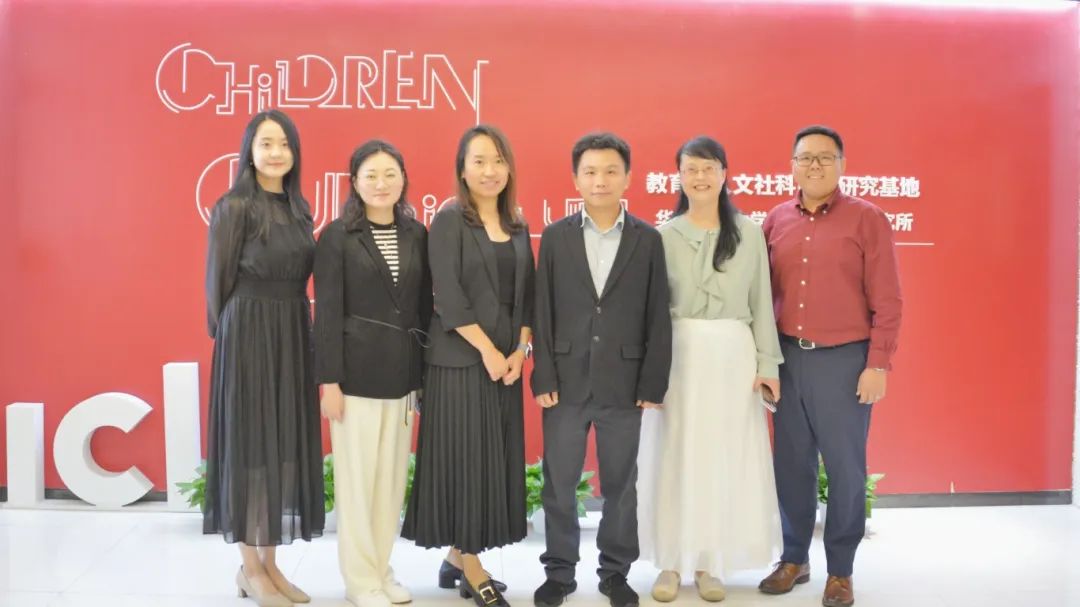ICI Event║"From Data to Evidence—Dialogue and Analysis in Digital Classrooms" Seminar Completed Successfully
2024-10-18
This seminar brought together experts, scholars and teachers from the field of education to discuss how to use artificial intelligence technology to unlock the potential of classroom data and promote classroom changes. The meeting was hosted by Chen Ye from the International Classroom Analysis Laboratory.
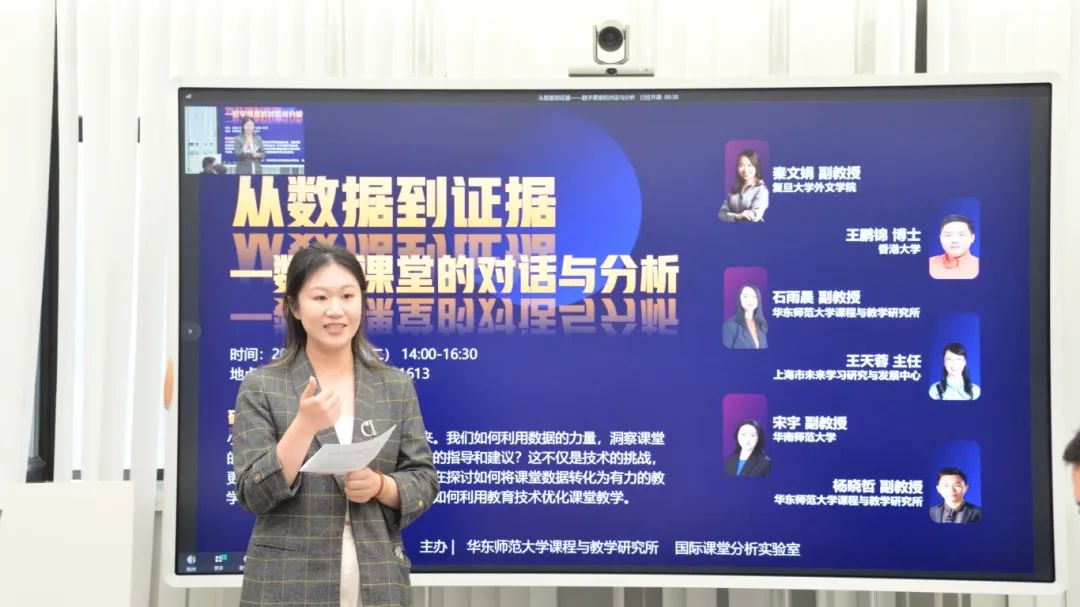
Associate Professor Yang Xiaozhe, deputy director of the Department of Curriculum and Instruction of East China Normal University and director of the International Classroom Analysis Laboratory, opened the meeting. He emphasized the importance of classroom data analysis and pointed out three important trends in the current transformation of classroom data into evidence: the transition from experience to coding, the automation of technology-assisted coding, and the discussion of human-computer collaborative teaching and research.
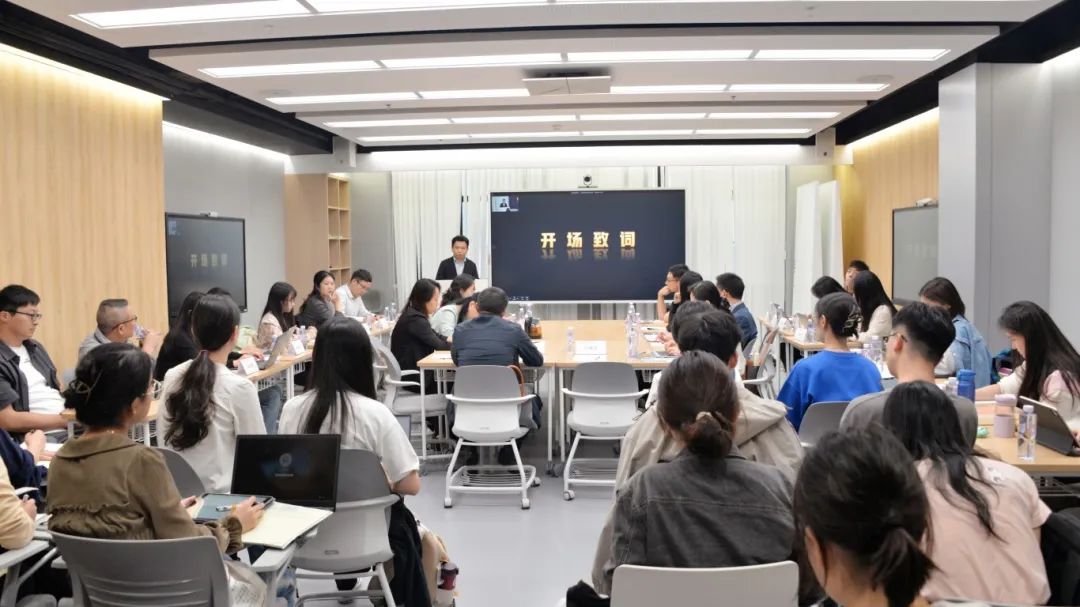
Subsequently, Associate Professor Qin Wenjuan from the School of Foreign Languages and Literature of Fudan University shared "Data-driven Research on the Development of Writing Ability and Its Teaching Enlightenment". Associate Professor Qin Wenjuan combined large-scale data to demonstrate how to use the intelligent analysis system of argumentative essays to analyze and improve students' argumentative essay writing ability, and explored the possibility of incorporating dialogue into writing exercises.
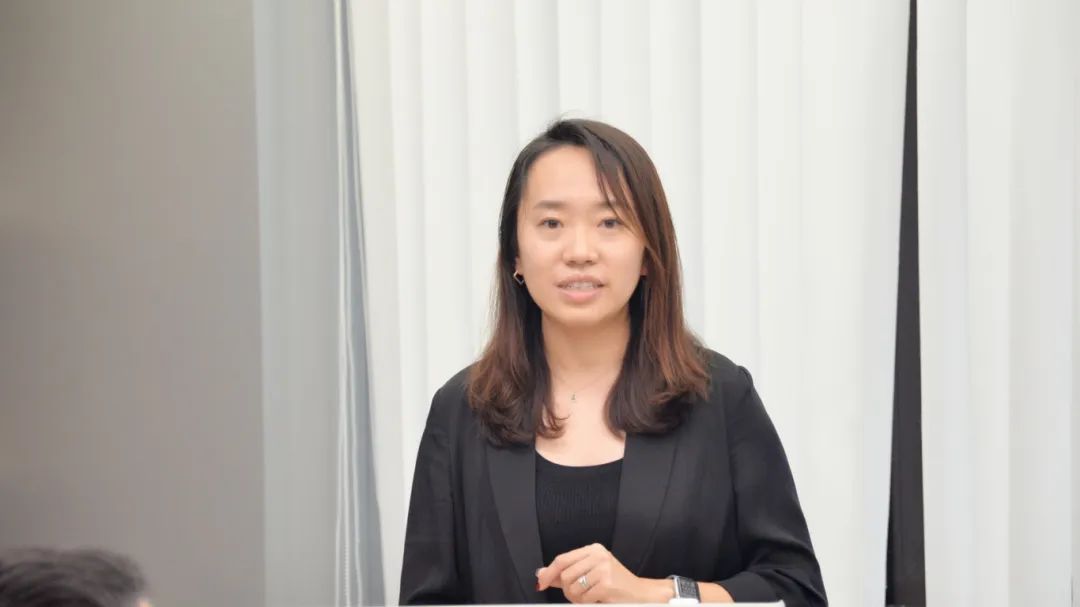
Associate Professor Song Yu from South China Normal University focused on "GAI technology-enabled classroom teaching accurate evaluation and personalized development". She introduced in detail how to achieve accurate evaluation and personalized development of classroom teaching by establishing a coding system and using artificial intelligence technology. She also demonstrated the AI classroom analysis system independently developed by the team at the meeting, showing more possibilities that artificial intelligence brings to education and teaching.
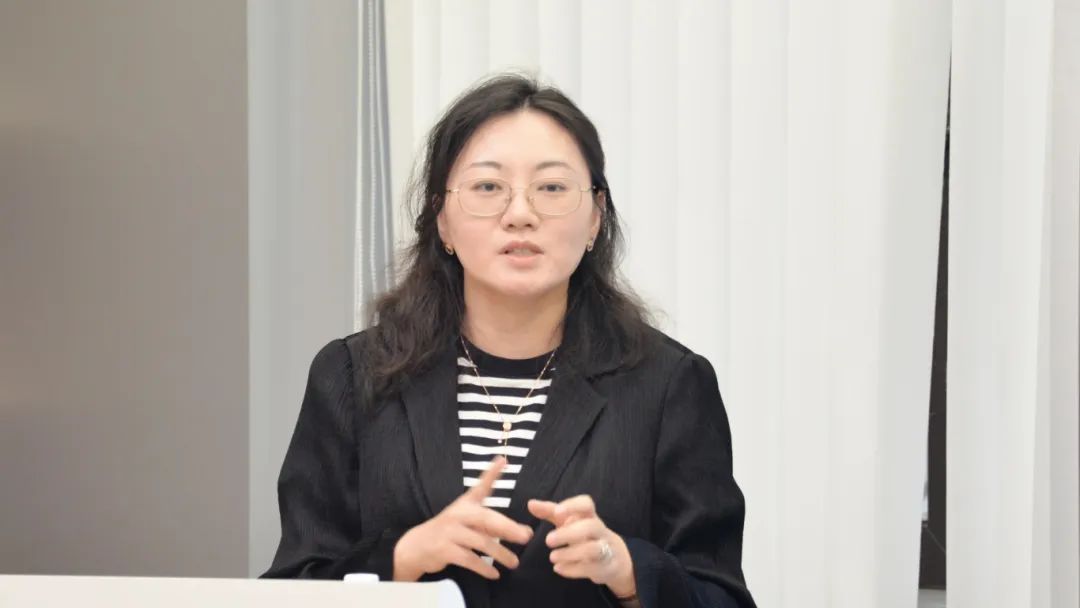
Dr. Wang Pengjin from the Faculty of Education of the University of Hong Kong shared "Beyond the 'Talking Steps': Teachers' Learning Trajectory in Video-Based Professional Development" from the perspective of teacher professional development. Through case study, Dr. Wang demonstrated how a primary school English teacher in Hong Kong used an intelligent visualization data analysis and presentation platform to learn and change in the process of professional development.

Wang Tianrong, Director of the Shanghai Future Learning Research and Development Center, brought a theme sharing of "Classroom Intelligent Analysis and Evidence-Based Teaching and Research". From the perspective of teaching and research staff, she discussed the application and practice of classroom intelligent analysis in evidence-based teaching and research. Director Wang introduced the artificial intelligence classroom analysis system and the five-learning analysis framework currently being used in Baoshan District, and used data to better drive regional empirical teaching and research.
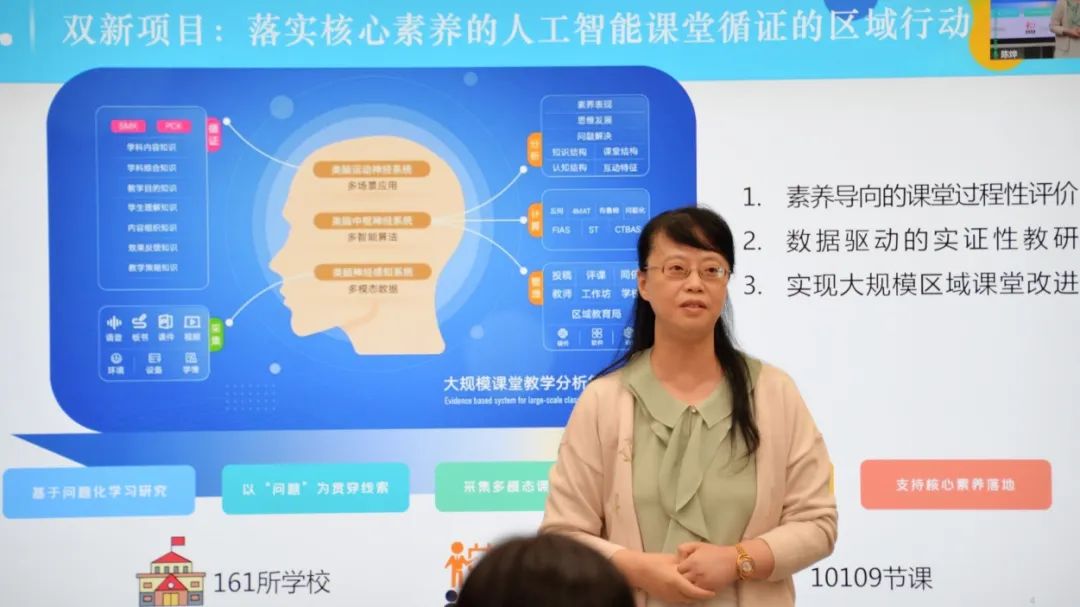
Associate Professor Shi Yuchen from the Institute of Curriculum and Instruction of East China Normal University, with the topic of "Multiple Data and Diverse Analysis in the Classroom", refined the different data types and analysis paths in the classroom. She emphasized that classroom analysis should not only focus on language, nor should it be simply superstitious about technology, but should focus on multimodal data and integrate multiple analysis paths.
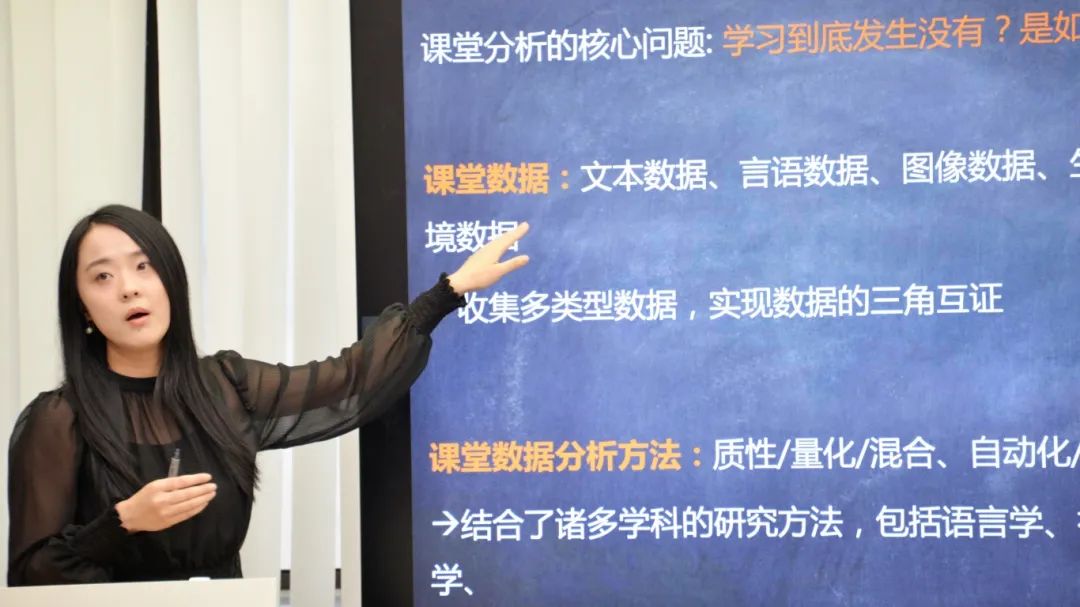
Associate Professor Yang Xiaozhe from the Institute of Curriculum and Instruction of East China Normal University shared the progress of high-quality classroom intelligent analysis at the seminar, emphasized the importance of classroom evaluation based on multimodal data, and pointed out the advantages of current artificial intelligence technology in automated analysis. He mentioned that although there is still room for improvement in accuracy, the development of technology has significantly accelerated the speed of analysis. Associate Professor Yang Xiaozhe also demonstrated the high-quality classroom intelligent analysis system developed by the laboratory, which provides valuable teaching feedback by analyzing a large amount of classroom dialogue data to help teachers improve their teaching methods. He hopes that through data-driven methods, teachers can become professional researchers, thereby improving the quality of classroom teaching.
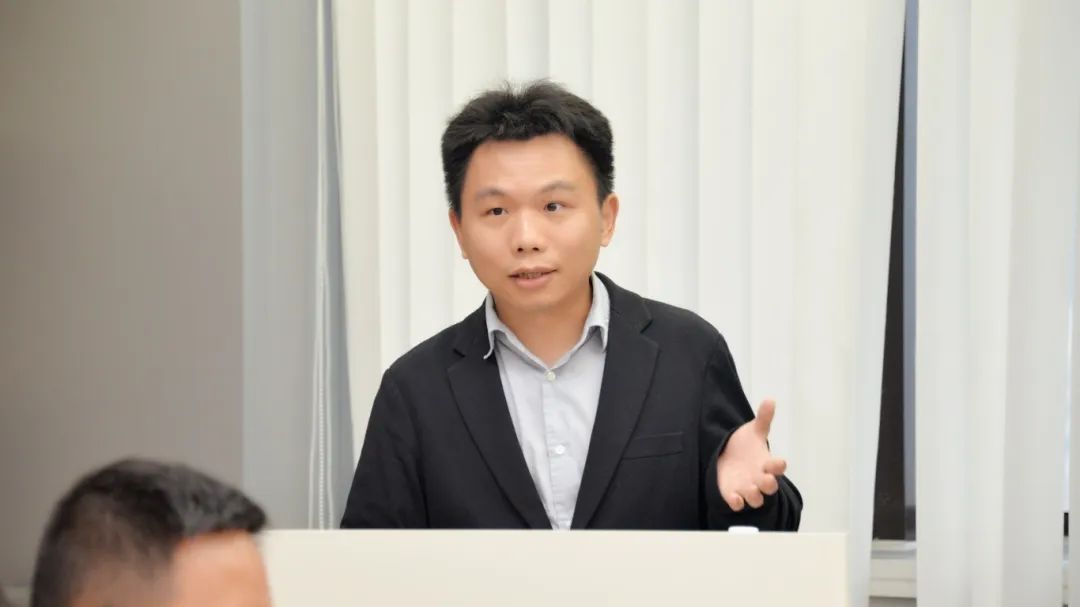
In the final roundtable exchange session, the guests discussed in depth the comprehensiveness and cost balance of classroom data, and how teachers can effectively use data analysis to optimize the classroom. Associate Professor Shi Yuchen pointed out that although multimodal data can provide a more comprehensive perspective, considering information security and technical difficulties, classroom discourse data is currently mainly analyzed. Teachers can use big data as a basis through a combination of point and surface, supplemented by in-depth multimodal analysis. The discussion also involved the difficulties in collecting student emotional data and how to provide targeted teaching feedback through technical means. Participants generally believed that although technology provides new perspectives and tools, the essence of education still requires human development, thinking and creation.
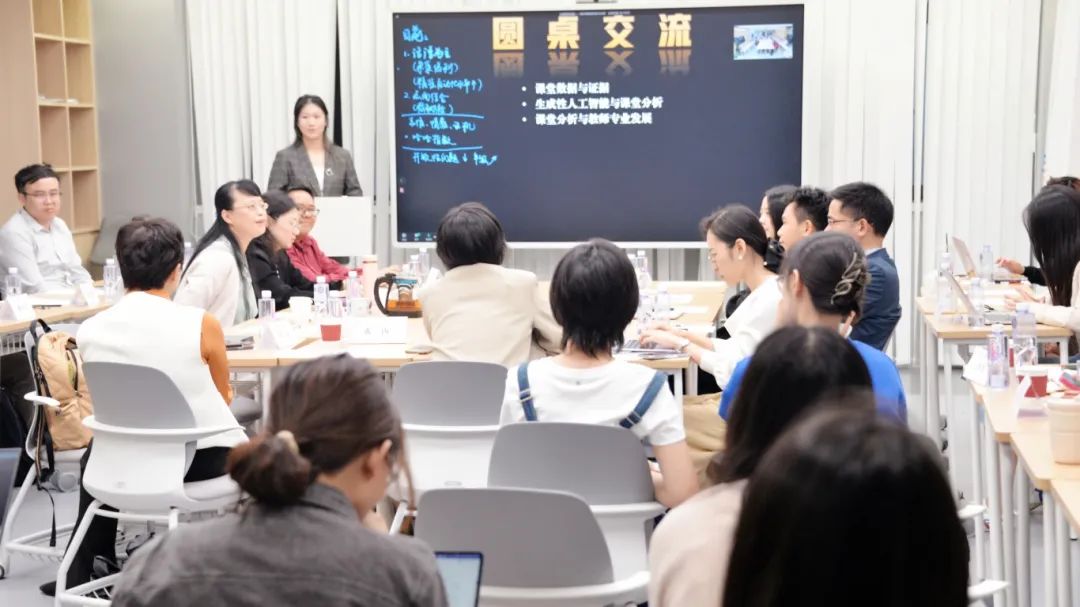

This seminar not only showcased the latest research results and development practices of classroom intelligent analysis technology in Shanghai, Guangzhou, Hong Kong, but also provided a platform for educators to communicate and learn, which is an important step for educators to explore new paths for education in the digital age. The meeting ended successfully with heated discussions and in-depth exchanges.
